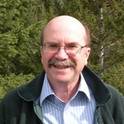Article
Adapting Human Societies to Conservation
Conservation Biology
(2010)
Abstract
Earth is finite. The human footprint is growing rapidly. As our species commandeers more of the planet, extinction rates are climbing and ecosystems are unraveling. Growth of the human footprint inheres in the structure and dynamic of the dominant human societies of the last several thousand years, presenting conservationists with a daunting challenge. Societies are organized around a continuous conversion of the world's ecosystems to human use. The decision makers we lobby, plead with, genuflect to, and curse are embedded in and owe their positions to these societal structures. But they do not simply respond to the constraints of these structures. As Machiavelli observed, a small number of people are always intent on achieving great wealth or power at the expense of the rest of us (and nature), and it is mostly they who occupy top decision-making positions. Few political or economic leaders, including those who care about nature, will consider solutions that might diminish their power. Hence, their ubiquitous deflection of demands to address conservation problems to debates about symptoms. If existing societal structures continue as they are, most conservation achievements may turn out to have been little more than temporary stays of execution.
Disciplines
Publication Date
May, 2010
Citation Information
David Johns. "Adapting Human Societies to Conservation" Conservation Biology Vol. 24 Iss. 3 (2010) Available at: http://works.bepress.com/david_johns/10/
